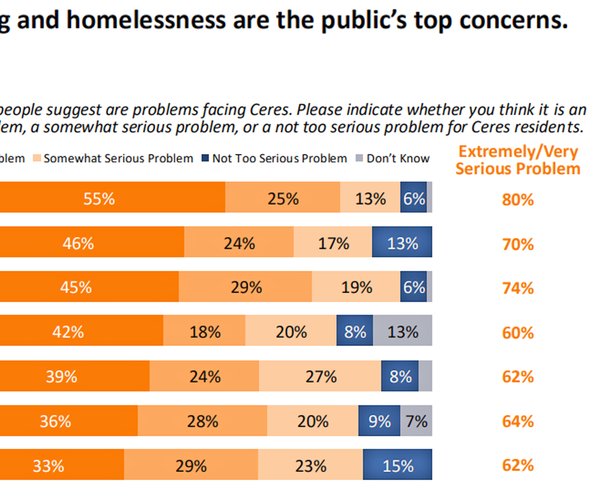A dose of reality smacked councilmembers in the face Monday evening when the city attorney noted that the fees charged to cannabis retailers in Ceres are excessive and need to be revamped.
Local governments which began permitting cannabis shops after a change in state law years ago and saw cannabis as a windfall for their budgets now are finding that it’s causing resurgence in the black market.
City Attorney Nubia Goldstein asked the council for feedback on ways to change the current structure in which cannabis shop are charged a fee under developer agreements. No formal action took place but direction was given to move toward a flat tax rate.
In 2017, Ceres was one of the first cities in the Valley to allow cannabis shops – and at least one manufacturer – under developer agreements that promised over a million dollars a year. However, the council modified the level of the public benefit fee in 2021 when Kase’s Journey complained the fees were too high.
“The public benefit structure has become more challenging,” said Goldstein who went on to say the market is being adversely affected by the taxes set at the state and local level.
“Only approximately 60 percent of the amount owed to the city under the development agreements has been paid by the businesses up until 2024,” said Goldstein. That amounts to over $1 million in arrears.
She also noted that with the steep fees, the city is challenged with an effective collection process and pressed the need for easier collection.
“At a statewide level, the cannabis industry has shrunk … in part this is largely due to the regulatory and taxation environment that these operators face.”
The high fees are driving an unregulated black market which she noted “completely upends the whole purpose of regulation.” Goldstein said cannabis products are regulated for safety but “once things are in the black market it’s a free for all and you don’t really know what you’re getting.”
Most cities which originally set up a developer agreement system are moving toward a flat rate tax structure on gross receipts. Such taxes must be voter approved, which Ceres already did in 2018. In 2018 Ceres voters approved Measure W to impose a business license tax of up to 15 percent of gross receipts on cannabis businesses and dispensaries should any court action strike down three developer agreements the city had in place with three cannabis businesses in Ceres. The measure was a backstop in case the agreements had to be terminated. That tax was never implemented.
Goldstein said the council would need to establish a tax rate. Countywide the taxes are as low as four and up to 8 percent of gross receipts.
“If we move towards a tax then we would eliminate the public benefit structure. So it would no longer be $20,000, $40,000 or $60,000 a month depending on gross receipts – that all goes away and it would be predicated on how well the business does in a given month.”
Goldstein also wanted to know if the council wants to enact a limit on how many shops may sell cannabis in Ceres. Presently there is none.
Andy Hartog, chief operations officer for Kase Manufacturing in Ceres, argued for the change.
“Across the state we have seen that the legal cannabis industry has not been the growth market everyone expected,” Hartog told the council, “due to the persistent black market and the high level of taxes and fees on the legal cannabis industry.”
He detailed that in 2018, Kase paid the city a set monthly fee that was 30.7 percent of its total gross receipts. The next year that fell to 26.36 percent. Since opening, Kase has paid the city over 12 percent of gross revenue, or $1.6 million.
“The extremely high percentage paid to the city is financially unstable and has made us go into arrears. We simply cannot afford it.”
He asked for a four percent tax like Modesto or less.
Ceres resident Shirley Rogers, who used cannabis for 11 years while she battled cancer, reminded the council that she predicted years ago that the city would “tax them out of business.”
“This is a business that should be treated no different than a bar, a tavern, or a place that sells alcohol,” said Rogers. “They’re not necessarily everybody getting loaded. You had a cash cow and you milked it dry. Now fix it.”
Mayor Javier Lopez said he favors a flat tax and dissolving developer agreement fees. He suggested a limit on cannabis shops, adding, “I feel this is very important to allow the local businesses that are already here and established have the first dibs when we start expanding.”
Councilwoman Rosalinda Vierra said she wants a realistic fee for shops but also suggested there is probably no need for more in Ceres. She stated that the smoke shops have caused the problems of illegal sales, not the licensed cannabis distributors.
Councilwoman Cerina Otero said there is much to consider and wants to do more research but believes in making “sure it’s fair for all businesses.” Otero believes there needs to be a cap on how many shops Ceres will permit.
Councilman James Casey said he is in favor of medicinal cannabis but against the city allowing recreational cannabis.





